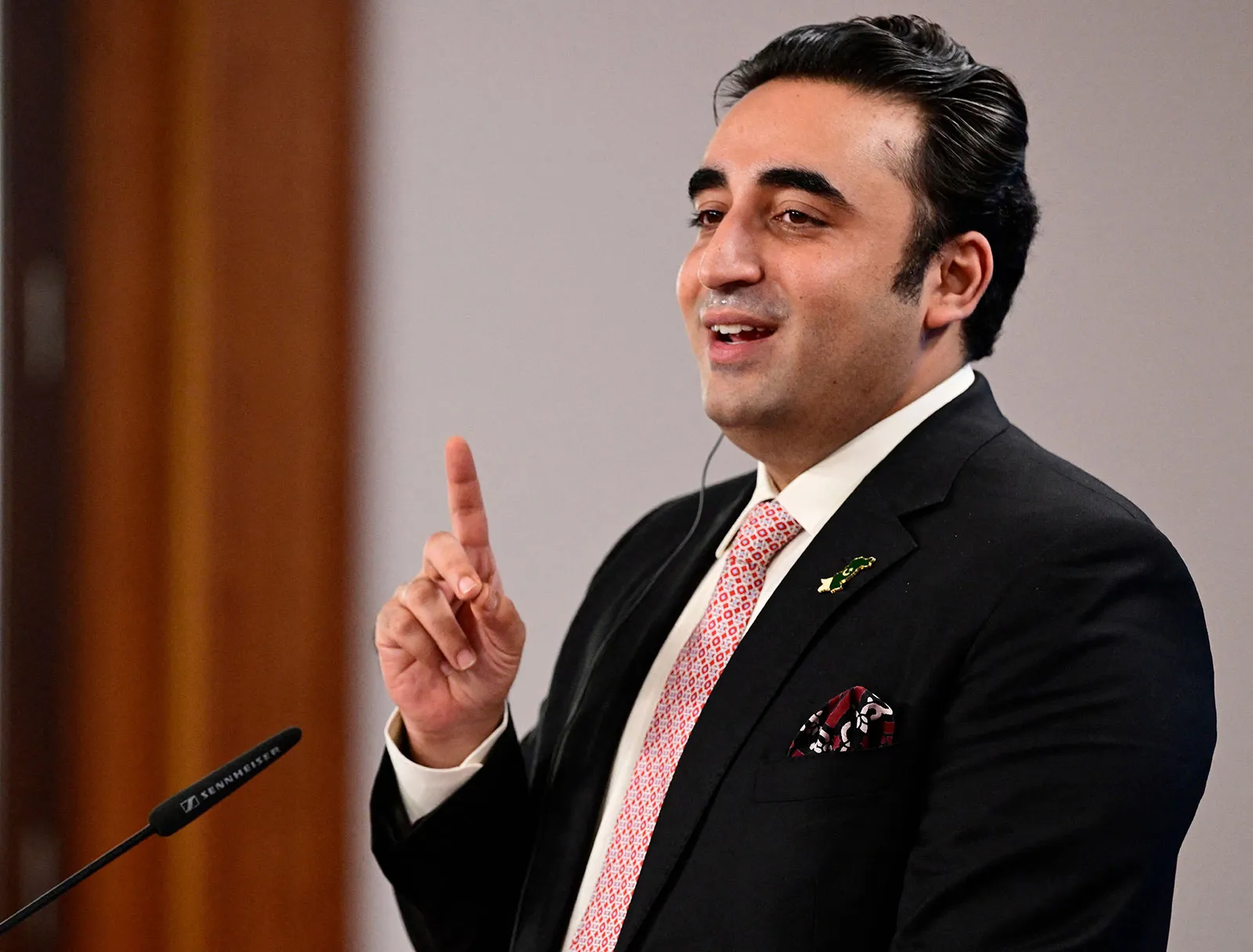In recent days, Pakistan has witnessed an escalation in aggressive rhetoric from both its military and political leadership, sparking fresh tensions with neighboring India. What began as a bold statement by Pakistan’s Army Chief, General Asim Munir, has now turned into a political contest of who can issue the most provocative threats.
The unusual episode, described by observers as a dangerous game of “Simon Says” or in this case, “Munir Says” began when General Munir issued sweeping threats, including the possibility of nuclear strikes and the destruction of critical infrastructure such as dams. His comments, made over the weekend, were widely seen as extreme, even by Pakistan’s standards, setting the tone for others to follow.
Bilawal Bhutto Joins the Chorus
Not to be left behind, Bilawal Bhutto Zardari, chairman of the Pakistan People’s Party (PPP) and former foreign minister, followed Munir’s remarks with his own combative statement. Speaking to supporters, Bilawal threatened war with India over water disputes, specifically relating to the Indus River.
The Indus Waters Treaty, signed in 1960, regulates water-sharing between the two nations. However, India suspended certain aspects of the agreement after the 2016 Uri terror attack, declaring that “blood and water cannot flow together.” Bilawal, whose party governs Sindh province an area heavily dependent on Indus waters seized the opportunity to frame the issue as a rallying cry for unity against India.
Political analysts say Bilawal’s stance serves two purposes: first, to strengthen his party’s image in Sindh, where water shortages are already severe; and second, to align himself with the military’s confrontational posture. However, critics argue his language lacks diplomatic maturity, particularly for someone who has aspirations of becoming Pakistan’s prime minister.
International Concerns Rise
Munir’s nuclear threats and Bilawal’s war talk have alarmed international observers. Michael Rubin, a former Pentagon official, likened Munir’s rhetoric to that of Osama bin Laden, calling the general “bin Laden in a suit.” Rubin warned that no concessions would change the ideology of Pakistan’s ruling elite, which he described as increasingly radicalized and willing to destabilize the region.
These comments add to growing concerns that Pakistan is adopting a more aggressive stance not only toward India but also toward the wider world.
Targeting Indian Diplomats
Adding fuel to the fire, reports have emerged that Indian diplomats in Islamabad are facing harassment through deliberate denial of basic services. According to official sources, the Indian High Commission has had its gas supply cut, forcing staff to rely on the open market for cooking fuel. Vendors have allegedly been instructed not to sell drinking water to the mission, and even newspaper deliveries have been stopped.
Indian officials have labeled these moves as “petty retaliation,” pointing to Pakistan’s long history of targeting foreign diplomats through surveillance, service cut-offs, and intimidation. Such actions, they note, violate the Vienna Convention, which requires host countries to ensure the safety and welfare of diplomatic personnel.
Possible Motivations Behind the Threats
Analysts suggest two primary reasons behind Pakistan’s recent wave of belligerence.
Restoring Deterrence: Islamabad may be attempting to restore its image of deterrence, which suffered a blow after India’s 2019 Balakot airstrikes demonstrated the Indian Air Force’s ability to strike targets inside Pakistan with precision. Continuous threats of war and nuclear escalation could be an attempt to reassert military dominance in public perception.
Diplomatic Positioning: Pakistan might be testing a diplomatic opening. With India’s relations with the United States reportedly strained and former US President Donald Trump seen as sympathetic to Pakistan, Islamabad could be positioning itself to gain political leverage internationally.
A Dangerous Road Ahead
While the aggressive statements may play well to domestic audiences, experts warn they risk pushing the region toward instability. The India–Pakistan rivalry is already one of the most volatile in the world, with a long history of wars, border clashes, and mutual distrust. Nuclear threats, in particular, carry global consequences and undermine Pakistan’s credibility on the international stage.
India, for its part, has largely dismissed the rhetoric, stating that its military is fully capable of defending the country without external mediation. Officials in New Delhi have emphasized that they will not be drawn into verbal warfare and will instead focus on safeguarding national security.
Conclusion
The recent surge in hostile language from Pakistan’s leaders reflects a deep-rooted political and military strategy centered on confrontation with India. Whether driven by domestic politics, military image-building, or perceived diplomatic opportunities, this war of words raises serious concerns about regional stability.
For now, the world watches closely, aware that in South Asia, words can quickly escalate into action and the consequences could be devastating.



